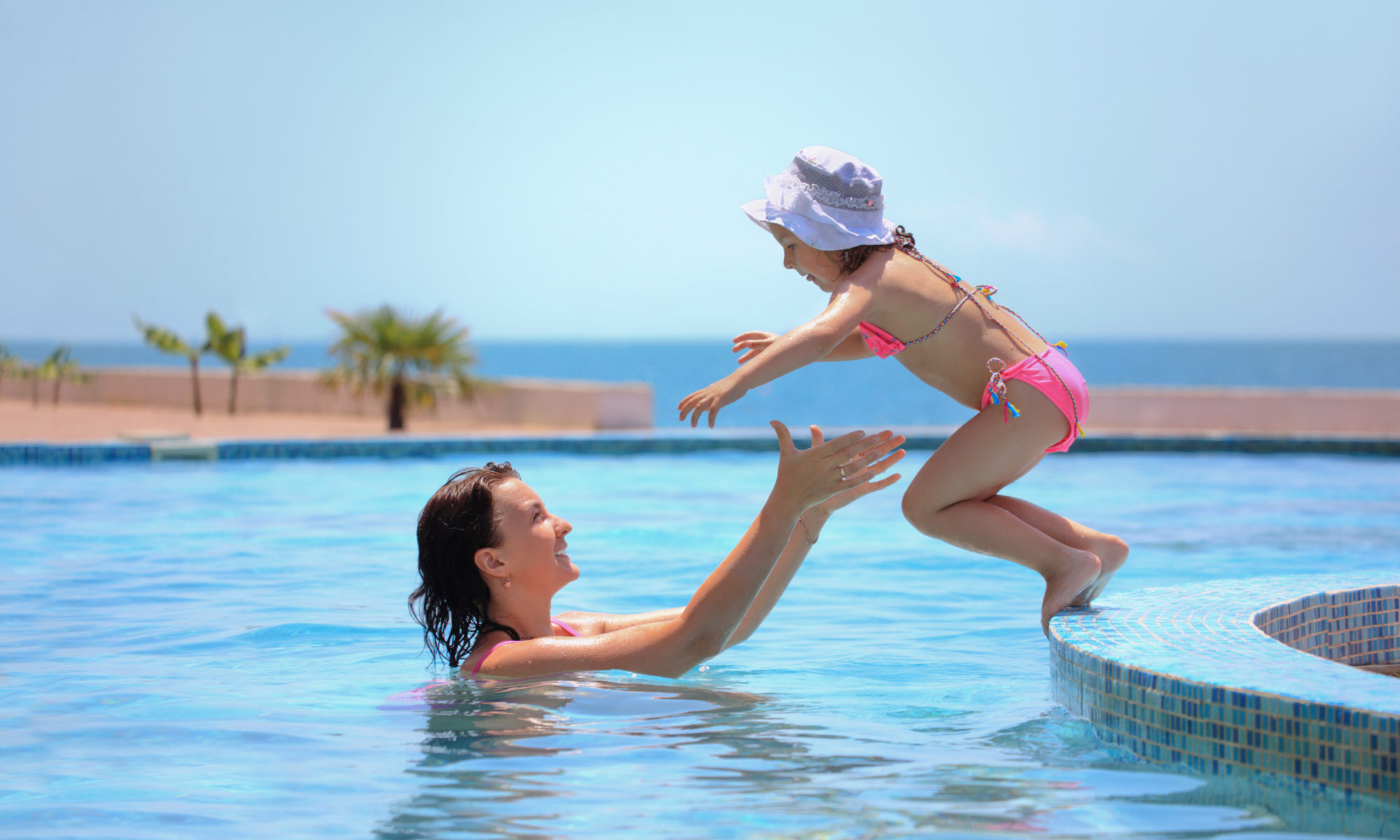It’s hard to get where you want to go if you don’t have a clearly defined goal. How do you define that goal when you’re teaching your kids to swim?
Think of what your child is capable of on land. If your baby is just learning to crawl, he’ll be able to similarly explore moving his body in the water, but don’t expect mastery. If your child can walk and run with great coordination, you can expect him to develop similar coordination in the water with practice. Keep your expectations reasonable.
Think about how much practice it took on land to develop the level of mastery your child has, though. Remember the process of learning to crawl, walk or run. At the beginning, it looked awkward and ungainly. Only with time and lots of practice did those movements become a natural way for your child’s body to move. Swimming will be the same. Keep your expectations reasonable.
Keep your expectations about form reasonable. Good form will help your child swim farther and faster, but his body might not be capable of good form. Swimming is like dance, tennis, or golf. Kids learn quickly, but until their minds and bodies are developed enough, don’t expect them to have the level of mastery you’d see in an adult.
Be aware of what it takes to achieve mastery. Athletes practice for a long time thinking about their form. At some point, it becomes second nature—internalized. Without thinking about it, they continue to improve. Learning to swim involves thinking and feeling in a very conscious way for a long time, and there’s a lot to think about and a lot to feel. At some point, the knowledge starts to move into your child’s body instead of just his head, just like walking or riding a bike. Many recent studies have pointed out that the amount of practice required to achieve mastery of a skill is ten thousand hours. It would take your child many years to get that much practice. Have you spent ten thousand hours of your life swimming? That’s an hour a day for almost thirty years. In the meantime (you know what’s coming!), keep your expectations reasonable.
Have I driven you crazy with the “keep your expectations reasonable” mantra? I’ve repeated it because it’s so important. The way your child feels about swimming will depend in large part on your feelings and your feedback. If your expectations are reasonable, you’ll feed his motivation to keep trying. If your expectations are unreasonable, you’ll be frustrated, he’ll be frustrated, neither of you will have any fun, and he’ll want to stay out of the pool and quit rather than disappoint you.

I agree that reasonable expectations are very important. I also agree the children learn from the attitudes of the adults around them. Example: adults say I am afraid of water, child learns to be afraid of water. Good info.
Great point. Thanks for the comment.